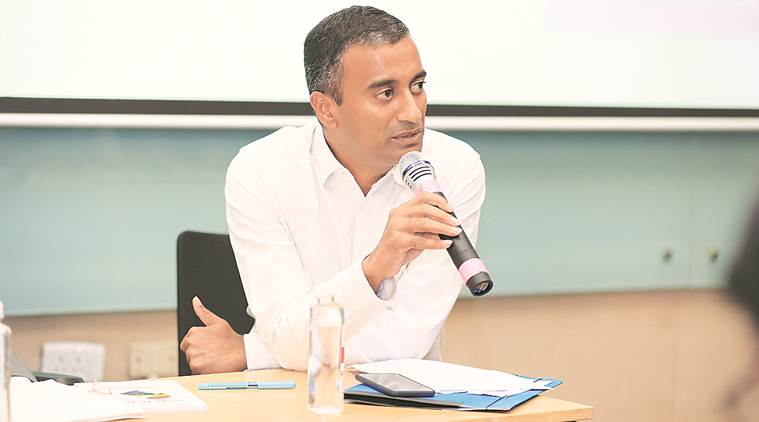 NLSIU Vice-Chancellor Sudhir Krishnaswamy. (Express Photo)
NLSIU Vice-Chancellor Sudhir Krishnaswamy. (Express Photo)
Facebook’s new oversight board — similar to an independent, internal court — has chosen National Law School of India University (NLSIU) Vice-Chancellor Sudhir Krishnaswamy as one of its first 20 members.
Prof Krishnaswamy, founder of the advocacy organisation Centre for Law and Policy Research, told The Indian Express that the new model could set an example for internet regulation in India and around the world.
“For the problem of content moderation on the Internet, either we take the market option (where the audience decides which company to use), or we have a state option (where the state regulates). Neither of these work,” he said.
The board is a third alternative, said the former Azim Premji University director and a Columbia University visiting professor. “In (press and broadcast) media regulation, there have been self-regulation options, but none has emerged as strongly,” he said.
Krishnaswamy has been chosen among the former Prime Minister of Denmark, a Nobel Laureate, non-profit organisation leaders, and journalists from all over the world. “Facebook as a company is to be bound by the board,” Krishnaswamy said, when asked about the most promising policies of the structure. “But we don’t have a direct relationship with Facebook. We do our job and they do theirs.”
He said the board will focus on “edge” cases that are most “consequential”. He said important cases of pornography and abusive online behavior would likely reach the board. The policies for the board have been outlined since 2018. If a user’s post gets taken down on Facebook or Instagram, this oversight board will act as an appeals process. The board will primarily judge content moderation cases in consistency with the company’s policies, as well as formulate policy suggestions.
At least for the beginning, it will not deal with posts that users want taken down.
“The Oversight Board will have power to overturn decisions we’ve made on content as long as they comply with local laws,” Facebook CEO Mark Zuckerberg wrote in a May 7 post.
While the print and broadcast media have attempted self-regulation models, Krishnaswamy said this is an entirely different structure adapted to the Internet age.